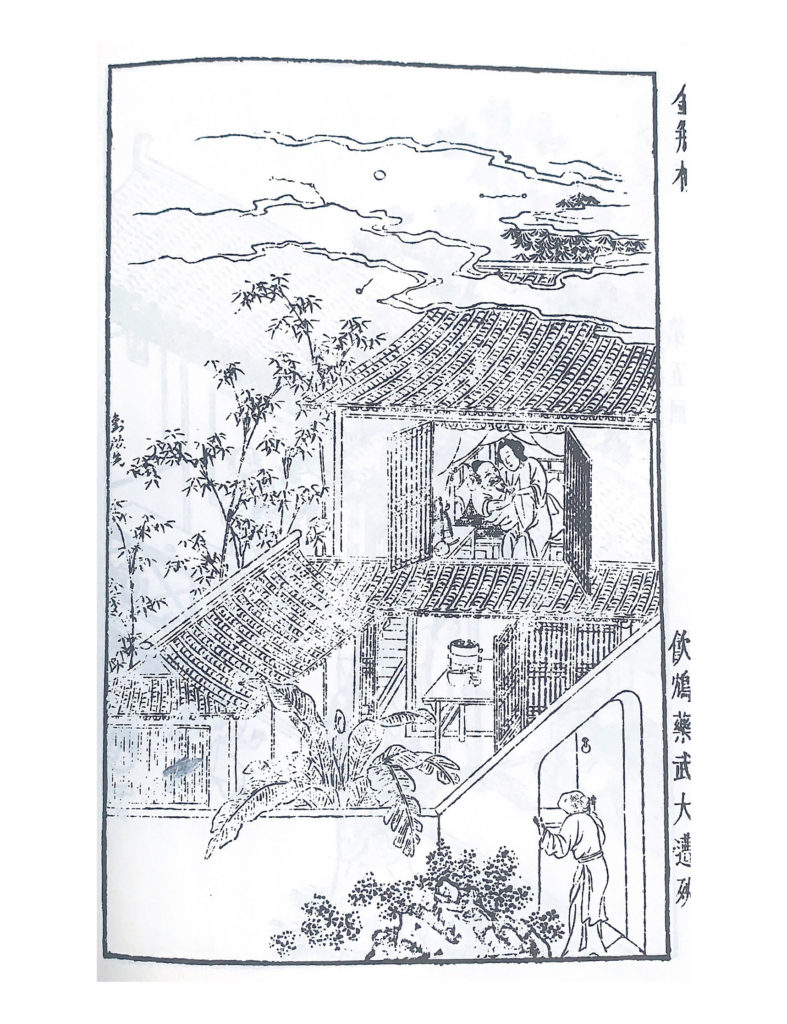November 5 at 7:30pm at Washington University in St. Louis’s 560 Music Center, Alarm Will Sound will present the world premiere of excerpts from Golden Lily by composer Fang Man and librettist Jie Guo. The complete is a three-act opera based on the sixteenth-century anonymous Chinese novel Plum in the Golden Vase (Jin Ping Mei金瓶梅). Its creators envision it to be the first of a trilogy of operas featuring the three titular characters—Golden Lily (Jin), Little Vase (Ping), and Spring Plum (Mei)—of the novel.

The original novel Plum in the Golden Vase is hailed as one of the “Four Marvelous Works” of traditional Chinese literature. Full of erotic scenes, it has been constantly banned ever since its appearance in the sixteenth century. Nonetheless, celebrated for its realist approach to late imperial Chinese society, nuanced portrayal of complex human nature, and incisive but compassionate exploration of human nature, this novel is recognized as one of the greatest Chinese literary works of all times and has been translated into multiple Western languages. In the English-speaking world, the renowned Sinologist David Roy’s complete translation of the novel was published by Princeton University Press in five volumes over the span of ten years (1993-2013).
The original novel has one hundred chapters and depicts hundreds of characters and centrally features the wealthy merchant Ximen Qing’s relations with his wives and mistresses. As a two-hour opera, our current project focuses on Golden Lily, one of the three main female characters in the novel. Golden Lily is arguably the most infamous femme fatale in Chinese literature. As a murderess who poisoned her first husband in cold blood, she is comparable in ferocity to Elektra, Salome, and many other controversial heroines in opera history. In addition, Golden Lily is known for her insatiable desire for men.
This opera, however, does not merely explore the dark side of this woman. Highlighting her longing to be with the man (her first husband’s younger brother) she loves and her anger at her fate of being sold from one man to another, we present Golden Lily as a woman who struggles for a better life but is only to be betrayed by people around her, including the only man she loves.
The chamber orchestra version of the first scene of the entire opera was composed for and dedicated to the Alarm Will Sound Ensemble and its artistic director Alan Pierson. Through my dear friend and colleague Mike Harley who is the bassoonist of the ensemble, I got to connect with Alan and some members of the ensemble, and we have been wanting to collaborate on this opera for years. In 2017, Mike commissioned me to compose a new work “Lament” for solo bassoon; upon this request, I composed “Lament,” which features one of the main characters Wu Dalang, the ghost of Golden Lily’s murdered husband in the opera. This work becomes one of my favorite works in recent years, and is incorporated into this chamber orchestra version of the scene. This performance also features soprano diva Ah Young Hong (Golden Lily) and Pipa virtuoso Yihan Chen.
In this scene, dressed in white from head to toe in mourning, Golden Lily is keeping a “pretend” vigil for her recently deceased husband Dalang in front of an altar set up for him. Throughout the scene, Lily is haunted by the (imaginary) ghost of Dalang and her neighbors’ voices, which gossip about Dalang’s murder by his wife. She reminisces about her past: Her father sold her to a wealthy man, who turned her into his favorite pipa girl in the household. Out of jealousy, the man’s wife got rid of her by forcing her to marry Dalang. She also recalls the night when she murdered Dalang. Feeling haunted, she accidentally burns down the house in a frenzied attempt to drive away what she believes to be Dalang’s ghost.

